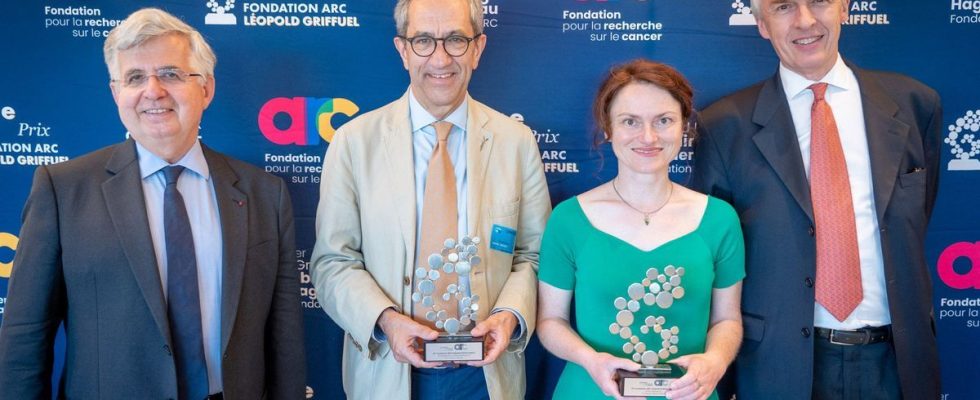Published on
Updated
Reading 2 mins.
On June 12, the ARC Foundation awarded the 51st Léopold Griffuel ARC Foundation Prize and the 1st Grand Prix Oberling-Haguenau ARC Foundation. What research was highlighted? Why are they crucial in the fight against cancer? Dominique Bazy, president of the ARC Foundation, answers us.
Who benefited from the Griffuel prize this year, and what is the importance of such an award?
Dominique Bazy: This year, two prizes were awarded from a bequest received by the foundation 50 years ago from Mr. and Mrs. Griffuel, each endowed with 150,000 euros.
- One rewarded fundamental research, by awarding the work of Prof. Sarah-Maria Fendt, a young German researcher who works in Belgium on breast cancer, and who is trying to understand the metabolic particularities of cancer cells which, when they detach from the tumor, will form metastases throughout the body . One of the researcher’s objectives is to determine early markers of metastatic risk as well as ways to limit it.
- The other rewarded clinical research, and was given to Pr Carlos Caldas, a researcher of Portuguese origin who works in Cambridge on the categorization of sick cells, as “we assign barcodes to products in supermarkets” says -he.
- For the first time, this year, we also awarded another prize, the Grand Prix Oberling-Haguenau Fondation ARC, which is intended for researchers working in the field of patient care, was awarded to Dr. Gwenn Menvielle, an epidemiology and public health researcher at Inserm, for her work on women returning to work after breast cancer.
All these prizes are today considered among the most prestigious in Europe. They are an opportunity to take stock of the major advances in research, in the service of more precise diagnoses, more effective treatments and more appropriate support for patients.
What are the challenges for cancer research in Europe?
There are several of them. The disease is global and the solutions are international, so research has no borders. There are excellent teams in all European countries (France is in this case very well positioned in this field), but also in the United States, Japan and China.
But in Europe, the first element is to try to better coordinate the efforts made in each of the countries. The second element is that the effectiveness of the treatment of cancers is not equal according to the European countries. There is less good management of the disease in Eastern European countries. One of the challenges is therefore to ensure that those who are a little behind catch up with the European average, which is very good.
How does the ARC position itself on these future challenges?
We are constantly trying to position ourselves on these different European aspects. Considering the awards ceremony as an acknowledgment of excellence means rewarding the teams where they are. And try to contribute to a better harmonization of research efforts in Europe, in France as elsewhere.
The second element is to promote mobility by helping researchers to join teams abroad, but also by setting up a scholarship over several years, to relocate researchers to France.
In this context, we have facilitated the installation of a Spanish researcher coming from Australia to set up her research team in Nice. A good way to increase the competitiveness and international influence of France in the field of oncology.
